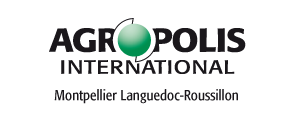PlantGrape

Objectives
The Pl@ntGrape project constitutes one of the multiple case studies of the Pl@ntNet platform initiated in October 2009 by Agropolis Fondation (consortium agreement between CIRAD, INRA, INRIA and IRD) to support agricultural research and sustainable development. This project is led by the Unité Mixed Technological Geno-Vigne®, in partnership with the UMR AMAP in Montpellier. It thus combines the expertise deployed by IFV, INRA, Montpellier SupAgro, IRD, INRIA, CNRS and CIRAD around the genetic resources of the vine and new information technologies.
The primary objective of Pl@ntGrape is to make accessible synthetic, validated and updated information on the varieties and clones of vines cultivated in France and more widely in Europe And in the world. It is addressed to anyone wishing to have information on grape varieties: wine growers, wine nurseries, technicians, researchers, students, wine lovers, etc.
The content of the website takes as its starting point the second edition of « Catalog of vine varieties and clones cultivated in France, published in 2007 (ed. IFV). Additional information and new varietal and clonal files were provided there. added, thus following current events. registrations and approvals issued by the Ministry of Agriculture.
Pl@ntGrape also offers an intuitive tool for morphological recognition of grape varieties. This helps to varietal identification, entirely visual, requires no knowledge “ ampelographic » a priori. Users, by simple selection of drawings of identification characters, reconstruct the robot portrait of the variety; sought after. The number and list of corresponding varieties are updated. day to day each new character used, making the identification process easier. The work carried out focuses on the identification of all the varieties referenced in the official catalog, and uses the IDAO software tool for this.
Partners
The INRA Center in Montpellier conducts research on vines and wine around three fields of activity: : agriculture, food and the environment. The thematic spectrum is broad and goes from gene to the wine region. Research on the theme of vine genetic resources involves two units: the “ Diversity and Adaptation of the Vine and Mediterranean Species » of the UMR AGAP and the Unité Experimental of the Domaine de Vassal which hosts at Marseillan-Plage the central ampelographic collection of the Institute.
The IFV, through the National Plant Material Center located in Paris. Au Grau du Roi (30) is a vine selection establishment. It coordinates clonal selection and conservation actions carried out throughout the territory thanks to close collaboration with the partners of the vine selection in France. The National Plant Materials Center also ensures, on the Espiguette estate, the conservation of the 326 grape varieties listed in the Official Catalog as well as the 1163 approved clones. /p>
Montpellier SupAgro, International Center for Higher Studies in Agricultural Sciences, is a higher education and research establishment, under the supervision of the Ministry of Agriculture. agriculture and fishing. Within it, the Institute of Advanced Studies of Vine and Wine (IHEV) brings together all the training offered in the fields of Vine and Wine and in particular the specialization of agronomist in Viticulture-Œnology. The IHEV thus plays a role as a permanent link between training, research and professionals in the wine sector.
The unit’ mixed technological project Géno-Vigne®, certified in August 2008, associates IFV, INRA and Montpellier SupAgro. Géno-Vigne® aims to optimize the management, conservation, characterization and valorization of vine genetic resources for the benefit of the wine industry. The collections of INRA at Domaine de Vassal and IFV at Domaine de l’Espiguette constitute a unique support in the world for its various research and development work, including training and communication. p>
These are the regional players in the selection. Made up of chambers of agriculture, inter-professions, associations or Sicarex, there are 33 of them, spread across all wine-growing areas and are closely involved in selection actions clonal, conservation of diversity; inter or intra varietal. They play an essential role in maintaining and promoting our wine heritage. Thanks to their collaboration, the safeguarding of the rarest varieties is preserved.
Pl@ntNet is an initiative led by three teams with complementary skills: the UMR Amap, the Imedia project team at INRIA Rocquencourt, and the #39;Tela Botanica Association, as well as a broad partnership including international organizations. Its objectives are to (i) develop research into explore the boundary between integrative systematics and informatics, (ii) promote the use of underexploited plant data reservoirs, (iii) promote citizen science as a means powerful to enrich information on the geographical distribution, ecology and uses of plants.
Agropolis Fondation wasé founded in 2007. Its aim is to support and promote the development of international level projects (research and research training programs) in the field of agronomy and sustainable development , focusing on issues from both the North and the South. It supports research projects, positions and stays for doctoral scientists, pre- and post-docs or confirmed researchers (junior or senior).
Relations
- Network
- List
- Geolocation
- More
Agropolis International
Agropolis International is a wide consortium based in Montpellier (France) on agricultural sciences for Mediterranean and Southern countries.
